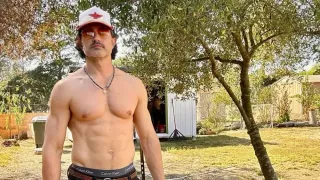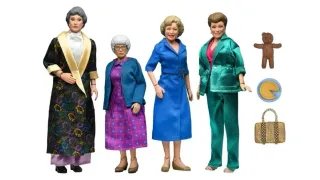November 26, 2016
Gordon Reflects on Time in Assembly
Matthew S. Bajko READ TIME: 6 MIN.
Next week gay Assemblyman Rich Gordon (D-Menlo Park) will be lounging in the South Pacific enthralled by a good book, the title still to be determined.
Forced out of his 24th Assembly District seat on the Peninsula due to term limits - he has served three consecutive two-year terms - Gordon's time in the state Legislature's lower chamber will officially come to an end Sunday, December 4. It will mark the first time in 24 years that Gordon, who formerly served on the San Mateo County Board of Supervisors and, prior to that, on the county's board of education, has not held elective office.
To mark the occasion, Gordon asked his husband, Dr. Dennis McShane, who is retired, that they take a vacation somewhere near an ocean.
"I told my husband when this is finished I just want to sit on the beach and read a book. So he booked us a trip to Tahiti," Gordon, 68, said during a recent interview with the Bay Area Reporter . "I said that will work. It seems like a good place to read a book."
When the couple returns in early December, Gordon plans to focus on what his next pursuit will be. He hopes to line up his next job sometime in early 2017 and is looking at various options in the nonprofit sector, private industry, or in government.
"I have some conversations underway with various people but nothing formal to announce," said Gordon, the first openly gay state lawmaker from the Peninsula, where he was born and raised.
Nor has he ruled out another run for public office. Gordon established a campaign account for a potential state Senate bid in 2020, mainly so he could continue to raise money and donate to other Democrats running for office. He told the B.A.R. that he is unsure if he will enter the race for the 13th Senate District in four years when Senator Jerry Hill (D-San Mateo) will be termed out of office.
"Candidly, I think it is unlikely," said Gordon, adding that "after the first of the year I hope to start some new activities and then will decide seriously if there is an electoral future or not for me."
His winning the education board seat in 1992 marked the first time an LGBT person had won public office in San Mateo County. LGBT leaders there praised Gordon, a onetime Methodist preacher who came out of the closet after he and his former wife saw the 1982 film Making Love , for paving the way for others to follow suit and for fighting for the rights of the Peninsula's LGBT residents.
"As a member of our community, Rich has been a shining example of being your most authentic self always. In a time when there were very few elected LGBT officials in the state, let alone San Mateo County, he served our county and region with dignity and thoughtfulness while being an out gay man," Jeffrey S. Adair, a gay man who chairs the San Mateo County Democratic Party, told the B.A.R. "He, with many other LGBT leaders of the 1990s, led the way and set an example for younger activists coming up through the ranks like myself to be open, honest, and advocate for our community as a whole while being out. I have always looked to him for advice and guidance and am proud to call him friend."
While Gordon's leadership will be missed, gay Woodside Town Council member Daniel Yost told the B.A.R. he hopes it will mean that Gordon and McShane will now have more time to spend with him and his husband, Paul Brody, and their two children.
"I'm sorry to see Rich leave office since he served as a mentor both to me and to many other local officials and community members on the Peninsula," wrote Yost, elected to his council seat last year, in an emailed reply. "He was a great representative for our community in Sacramento and his departure there after just six years shows the downside of term limits. The one upside is hopefully I'll get to hang out more with him and his husband Denny when he is spending more time back home on the Peninsula."
A Tenure of Fights and Firsts
Gordon landed in Sacramento to find the state mired in a fiscal mess and spent much of his first term working with state lawmakers and officials on balancing the budget. In 2011 a new nonpartisan committee redrew his Assembly District to include San Mateo's coastal areas, yet he sailed to an easy re-election win the following year.
His tenure coincided with the election of the state's first gay and lesbian Assembly speakers, one of the most powerful positions in state government, and he served as the chair of the influential Assembly Rules Committee under three successive speakers.
"That had never happened before," noted Gordon, adding that he oversaw everything from assigning bills to be heard at committee to writing personnel policy for state employees. "For me, personally, that role was a very positive chance to engage in things I think will have an impact moving forward on the institution."
He also helped pass a number of bills advancing rights and protections for the LGBT community. In 2013 he authored a bill that requires health care workers in the state receive LGBT cultural competency training. And last year saw the adoption of Gordon's bill requiring California public utilities to seek out LGBT businesses as part of their supply chains.
Taking effect this January 1 will be a bill Gordon co-authored that caps the prices of specialty drugs that treat ailments such as HIV, AIDS, and hepatitis C. Californians will pay no more than $250 for a single 30-day prescription of their medications.
Another key focus for Gordon was environmental issues, passing bills focused on plastic bottle recycling, capturing storm water, and recycling water. During his time as chair of the Assembly Budget Committee, he fought for funding to address sea level rise along the state's coastline.
"When I look back on what I was able to accomplish, I feel pretty good about the work that got done," he said. "I don't have any regrets."
His legislative victories were even more rewarding when he secured bipartisan support.
"I had Republicans vote yes on my bills. Sometimes I would look at them and go, 'Are you really doing this?' They would say, 'It is your bill and you are OK.' I think it just stressed how important it is that our community be at the table," said Gordon. "It does make a difference."
Starting in 2012 he took over as chair of the California Legislative LGBT Caucus and served a record three consecutive terms in the position. During that time he resisted calls from some LGBT community leaders for the Legislature to create a special committee focused on LGBT issues, telling the B.A.R. he didn't think it was necessary and would only slow the passage of LGBT rights bills.
After the 2014 election of straight Assemblyman David Chiu (D-San Francisco) to a seat that had been held by out lawmakers for years, Gordon rejected allowing Chiu to join the LGBT legislative caucus. He and its members elected to maintain a rule restricting its membership solely to LGBT lawmakers.
While the membership ranks of the LGBT caucus rise and fall each election cycle - come December it will return to its high mark of having eight out lawmakers - Gordon said he believes its future longevity is assured. The caucus will see three new members joining it in the new legislative session along with two gay and three lesbian returning lawmakers.
"I think the caucus will do fine," said Gordon, who is departing the Legislature next month along with gay state Senator Mark Leno (D-San Francisco) due to term limits.
While no LGBT candidate ran to succeed him, Gordon believes the power of the LGBT community on the Peninsula will continue to be strong. Both gay Mountain View City Councilman Chris Clark and lesbian San Mateo County Harbor Commissioner Sabrina Brennan won re-election earlier this month, ensuring there is a farm team of LGBT elected leaders to run for higher office in future years.
Gordon noted, "There never were that many out electeds in San Mateo County; I was often the only one at the party." Yet in recent years he said there has been "a greater emergence of an LGBT community" in the area, pointing to the establishment of a countywide LGBT commission to ensure there is local funding for LGBT programs.
"I think the future is very bright in San Mateo County," he said.






